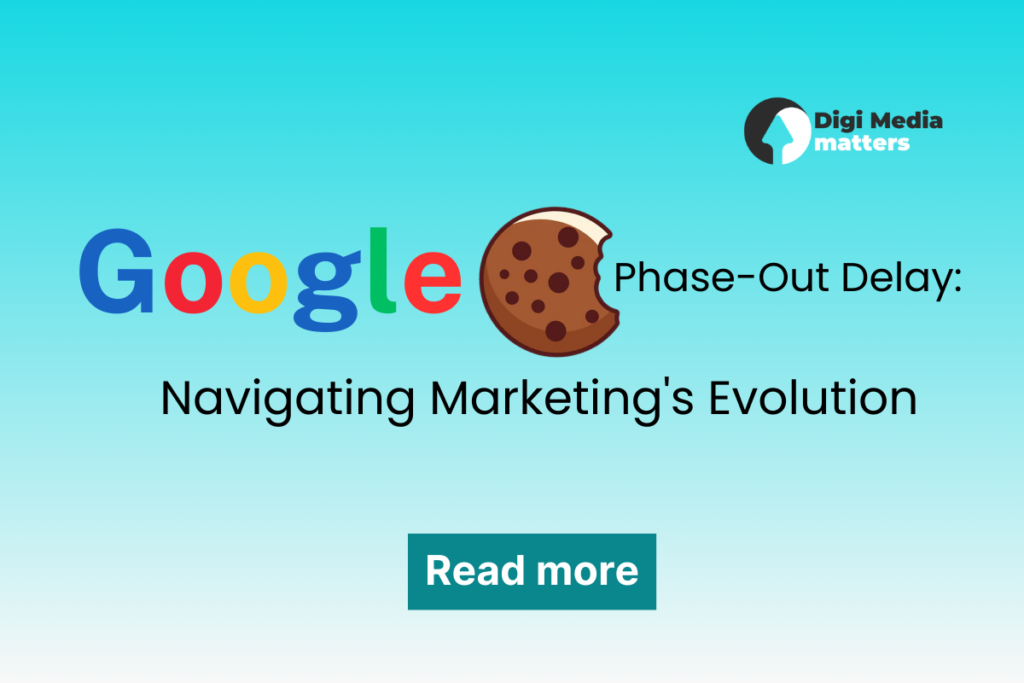
In what can be considered as the latest instance of Google calling the shots, the tech giant has extended the deadline to remove the most commonly used third-party cookies. This decision, implicated by the existing problems and regulatory pressure, recognizes the intricacy of bringing user privacy and the needs of the ad network into equilibrium.
The cookie phase-out that was to happen in 2024 has been postponed again as Google Corporation is still dealing with the Competition and Markets Authority’s (CMA) concerns. The CMA has raised the issue that some of its competitors may face challenges due to the cookie phase out and the entire Google powered ad ecosystem might be at stake.
Through complying with the requirements of CMA and extending the deadline, Google demonstrates the company’s prominent level of determination to create a seamless transitional process and safeguard the market from any privileges. Conversely, it underscores this delicate balance of user privacy, advertising efficiency, and maintaining a level playing field for all players.
The issue of data privacy and personal data is at the heart of this problem due to the increasing demand for privacy and data protection. Third-party cookies, which have been used in the past to achieve relevant targeted ads and user tracking, have recently attracted criticisms rooted in geared towards safeguarding the privacy of the users and data integrity. Google’s strategy is to move away from the use of these cookies and produce a new set of solutions, identified as the ‘Privacy Sandbox’. These are aimed at solving the issues raised by the public but still allow advertisers to reach their audiences with effectiveness.
The Privacy Sandbox options are made up of anonymized data aggregation and user consent mechanisms, which are supposed to strike a balance between private privacy and the effectiveness of advertising. Nevertheless, measuring and decreasing the carbon footprint has not been an easy matter and it takes concerted action from the industry and government regulators to make it happen.
The implementation of the cookie phase-out and its associated issues show the hurdles for Google and, by extension, the whole online marketing industry in making this transformation. Both advertisers and publishers have set up their campaigns on existing targeting and measurement systems and are thus quite anxious about the possible disruptions. Furthermore, this could lead to a revenue decrease.
Even though these adversities have arisen, the assertion for more user privacy and data security nevertheless is of main concern. With consumers’ public attention and regulatory awareness becoming increasingly critical to data management systems, organizational readiness and agility are constantly being put under scrutiny as they must adopt and create new evolving standardizations.
The fact that Google is ready to deal with the CMA’s issues and involved itself into the whole ecosystem through the transition window highlights the attention that they have towards the issues. The initiative of Google consists in granting the opportunity to industry for extended testing is an added advantage for gathering and presenting evidence and regulatory review which act as a platform for a deeper comprehension of the effect and the smoother transition of all the stakeholders.
The digital marketing industry is rapidly evolving and the only way to stay relevant is by being adaptive and dynamic. Those able to take advantage of the paradigm shifts and focus on user privacy will be in the winner’s circle. The cookie phase-out delay marks another point where the industry must get creative and transparent to assuage consumers’ trust and secure advertising’s future.
